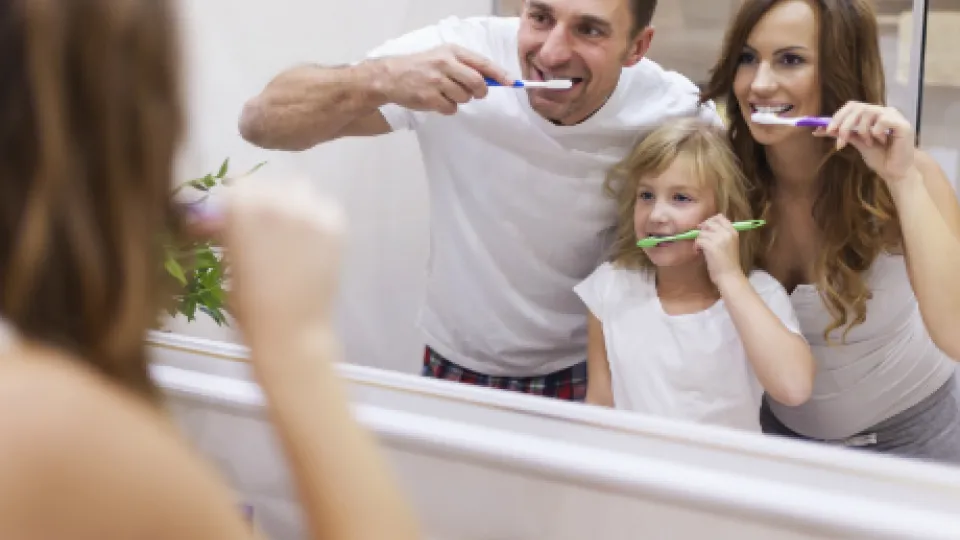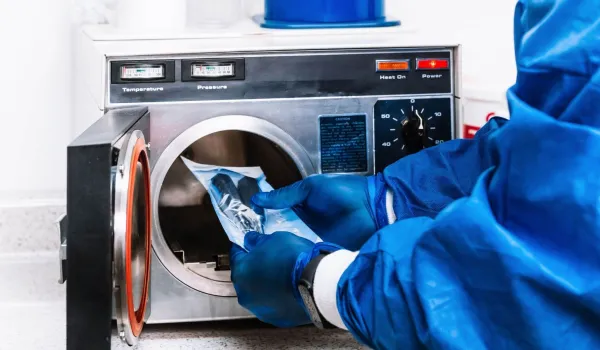
As any parent can tell you, getting kids to brush their teeth correctly and thoroughly can be an exercise in frustration - even worse than getting them to eat their veggies. Well, almost. But the truth is, developing good dental hygiene habits at a young age is essential to instilling a lifelong commitment to dental health.
Preventative Care Starts Early
Most dentists recommend cleaning a child's teeth as soon as they begin to emerge, although some advise waiting until age 2 or 3. Fluoride is an important part of cavity prevention in youngsters, too. According to the American Academy of Pediatrics, fluoride toothpaste should be used by all children as soon as teeth begin to break through the gums. Just a tiny sliver is necessary up to age three, and a dab the size of a pea after that. At around age 6 or 7, a child will have developed the necessary coordination to begin brushing on their own.
Tooth decay among children is a serious problem. According to the Centers for Disease Control, tooth decay and cavities are among the most common chronic ailments for children and adolescents. Brushing twice each day, flossing regularly, and eating a healthy diet are the best ways to combat tooth decay in children and adults alike.
Making Brushing Fun
Brushing stimulates the gums and wards off gum disease and removes the tartar and plaque that contributes to cavities. But brushing thoroughly enough to do a good job takes more time than most kids are willing to invest. "Brushing is boring," they say. So how do you get your child to brush effectively? The trick is to make it fun and interesting.
Here Are 5 Parent-Tested Tactics To Get Your Child To Brush Longer
Children will do as you do.
Toddlers love to copy everything their parents do, so lead by example. Make sure you both have the same color toothbrushes and make a game out of it. See who can brush the longest and build up the most foam.
Reward them.
There's nothing dishonorable about a reward for a job well done while building a life-long habit. Tell them they can watch a favorite show or play a game if they successfully brush for a certain amount of time. And mean it.
Go electric.
Those electric toothbrushes made to look like their favorite characters are popular with kids for a reason, and some even have timers built right into them. You might wind up having to take it away from them lest they brush too hard!
Let them choose the toothpaste.
Like cereal, this will probably have more to do with the picture on the box than anything else. And children's toothpaste is made to taste yummy. Just make sure it has fluoride in it.
Practice counting.
Have them concentrate on brushing individual teeth for 30 seconds each, counting out as they go. Move on to the next tooth in sequence only after reaching 30. "Race" with siblings.
With some built-in fun and your parental oversight, your children are sure to build the habits that set them on the path to a lifetime of good dental health - eventually.
Learn the habits that will make you a trusted "brushing advisor" to children and adults alike. Concorde offers both Dental Assisting and Dental Hygienist training at a location near you!
Take The Next Step Towards a Brighter Future
We have a Concorde representative ready to talk about what matters most to you. Get answers about start dates, curriculum, financial aid, scholarships and more!




